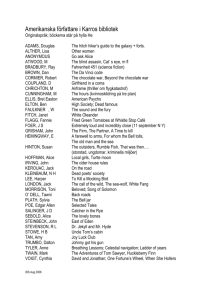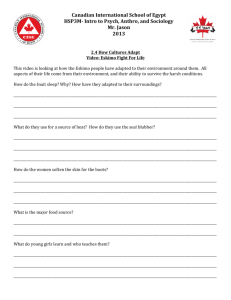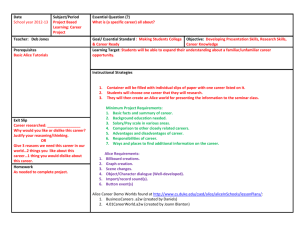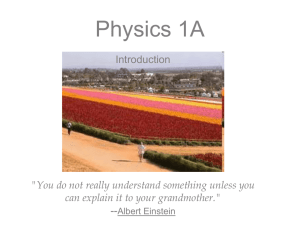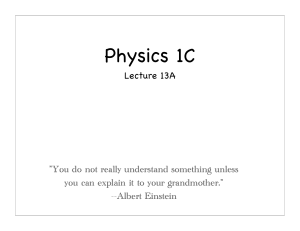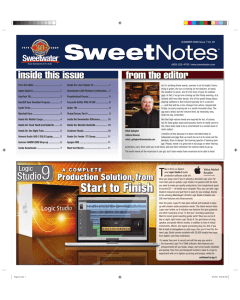Meeting1 - CE21 San Diego
advertisement
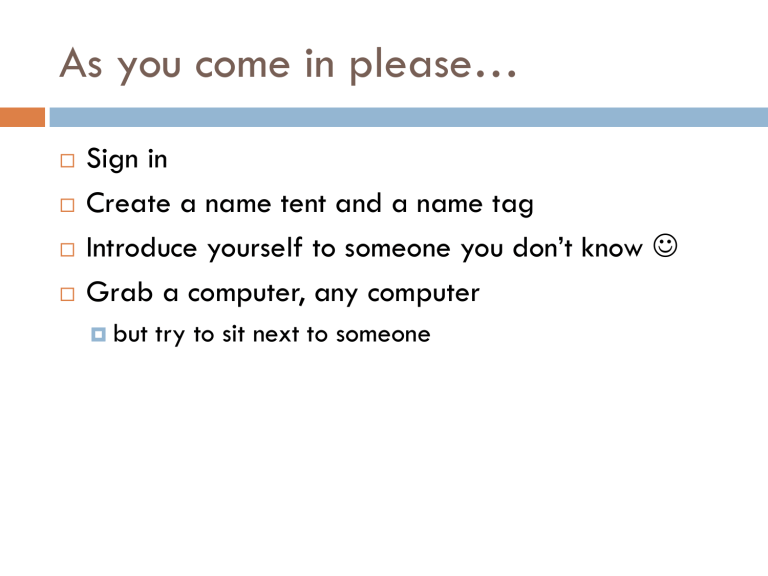
As you come in please… Sign in Create a name tent and a name tag Introduce yourself to someone you don’t know Grab a computer, any computer but try to sit next to someone COMPASS: COMPUTING PRINCIPLES FOR ALL STUDENTS’ SUCCESS Beth Simon, UCSD Leland Beck and Sasha Chizhik, SDSU Diane Baxter and Jeff Sale, SDSC Tasha Frankie, UCSD and Mesa Agenda Why we are here Introduction to national effort What the next 8 weeks will be Getting to know us: Who am I and How did I come to be a (computing) teacher? A word from our teachers – Art Lopez Sweetwater Example of course pedagogy Clickers for development of analysis, discussion, and teamwork Break (~5:30-5:40) Agenda Introduction to Alice – group programming Flow Do of control In Order Do Together Counted loops (do repeatedly) If Statements (do conditionally) Problem: Not enough students want to study computing No “standard” high school course AP CS A often turns students off We need to broaden participation in computing field And… is this the 21st century? What is “Calculus” in Computing? High School Biology CS Principles National CS10K Effort National Science Foundation Grant College Board/Advanced Placement NEW CS Principles course – more popular than Calculus! Define a “general education” level of computing (for college students) Computational Thinking Practices Analyzing Effects of Computation Analyzing Problems and Artifacts Creating Computational Artifacts Communicating Processes and Results Working Effectively In Teams Using Abstractions and Models Goal: In-service Prepare and support 19 teachers to teach this GENERAL EDUCATION computing course Not necessarily “programming” teachers Not necessarily “computing” teachers Pre-service Course at SDSU (for students who will get credentials in other areas) Join these people! Lincoln Valhalla Oceanside Grossmont Sweetwater Hilltop Otay Ranch Castle Park Foothill Christian Hoover Mission Bay O’Farrell How this will work 8 Weeks Alice programming content It’s not your father’s programming course Strong focus on analysis and communication skills Engage you in the student EXPERIENCE On-line preparatory “exploratory homework” (e.g. the textbook) Peer Instruction Discussion Labs and Communication Skills What teaching this class WON’T BE Sitting at a computer and having students follow along as you do something Assigning students programming exercises to complete Instead… Logical Thinking Learning through Trial and Error Discussion and Communication Teamwork Do you like it? Summer Pedagogy PD 4-Days practice Summer apprenticeship via UCSD Summer Session School year Materials provided (online resources, clickers) Other support systems That you tell us you need! We are a diverse group! Who am I and How did I come to be a (computer) teacher? Example: Art Pairs – 2.5 minutes each Group: Each person introduces their partner Agenda Why we are here Introduction to national effort What the next 8 weeks will be Getting to know us: Who am I and How did I come to be a (computing) teacher? A word from our teachers – Art Lopez Sweetwater Example of course pedagogy Clickers for development of analysis, discussion, and teamwork Break (~5:30-5:40) What happens in class… What does this code do? A. B. C. D. Makes the eskimo girl say Hello, then jump up and down Makes the eskimo girl say Hello WHILE jumping up and down Makes the eskimo girl say Hello None of the above More Later: The “Peer Instruction” pedagogy Pre-Class preparation Quiz/Incentive/Feedback 1) Individual Thinking, Vote 2) Group Discussion (with 1-2 other students) 3) Group Vote Class-wide discussion Student-led/Instructor Modeling/Mini-lecture Alice 2.3 (not 3.1) “Drag and Drop” programming language Create movies and video games http://alice.org Download with textbook worlds http://ce21sandiego.org/2013 Today: Basic Flow of Control Computers execute instructions Do In Order: in order from top to bottom Do Together: simultaneously (with some confusion due to duration of actions) Loop (or Counted Loop): Repeatedly If/Else Statement: Conditionally (not all the time) Vocabulary: Methods, Parameters Tiles/Instructions, method calls Control Tiles Counted Loop If/Else

